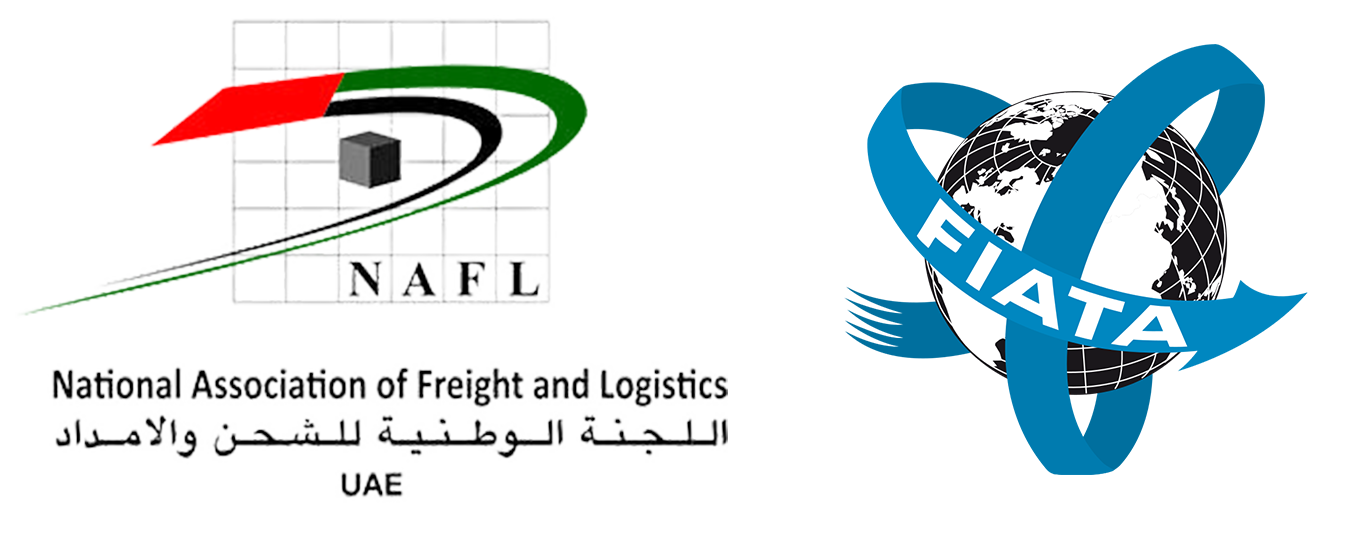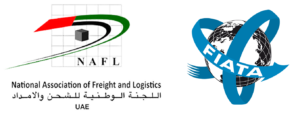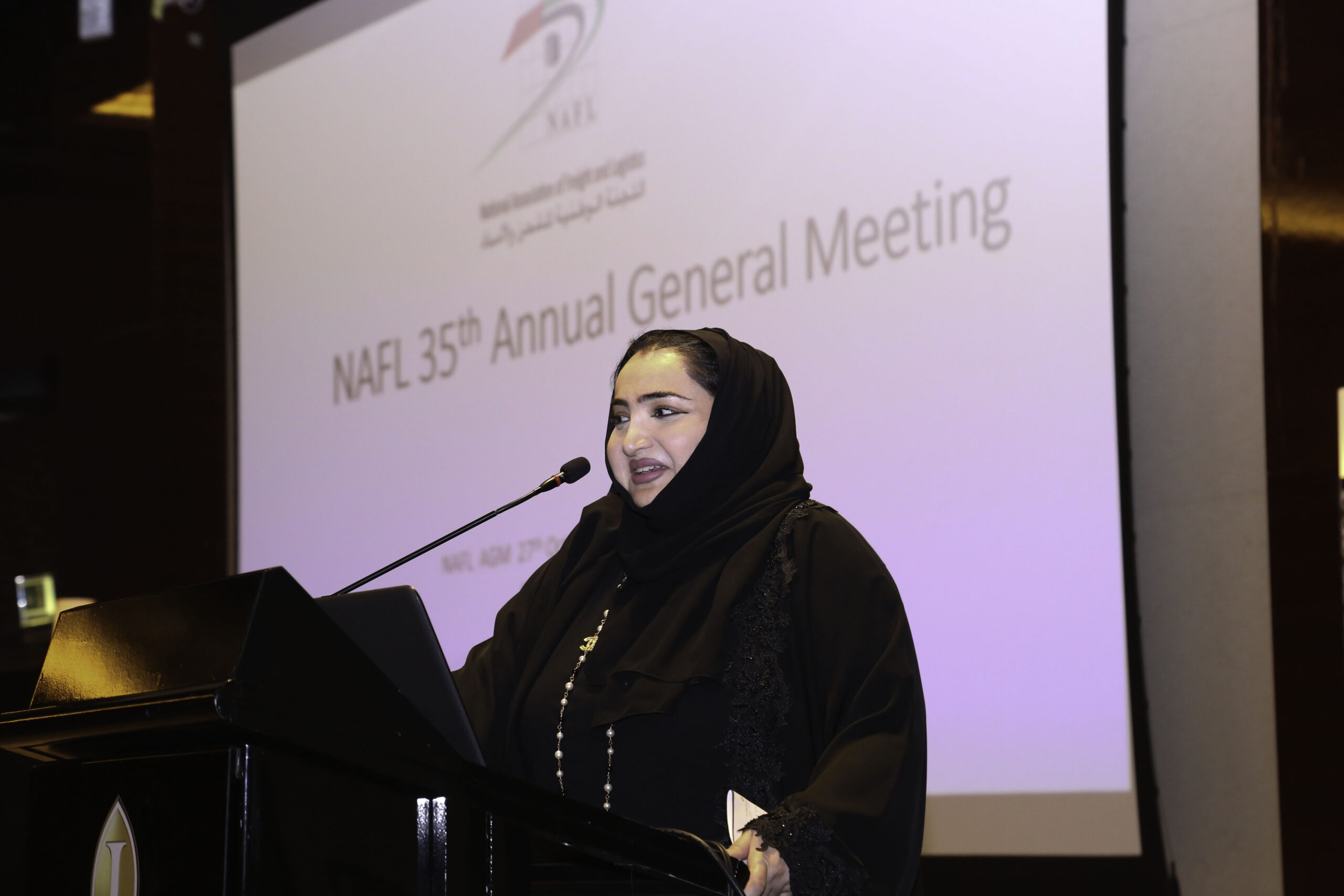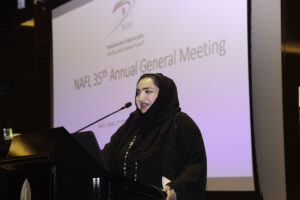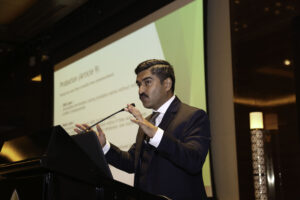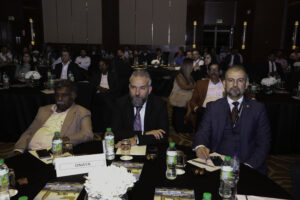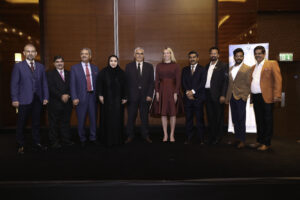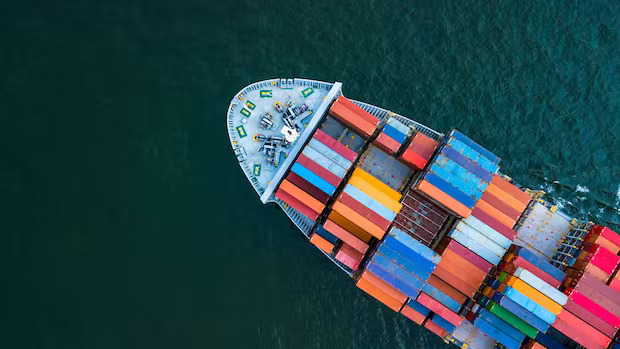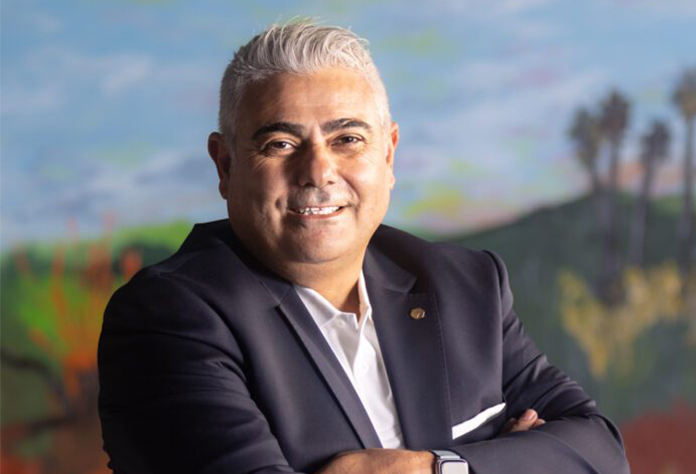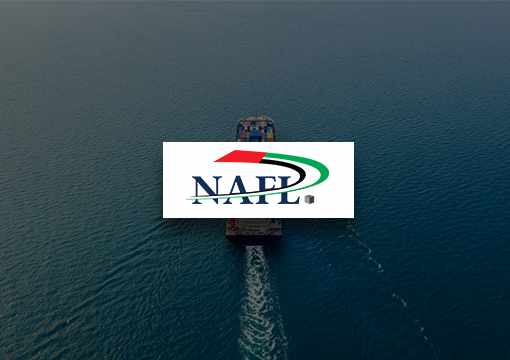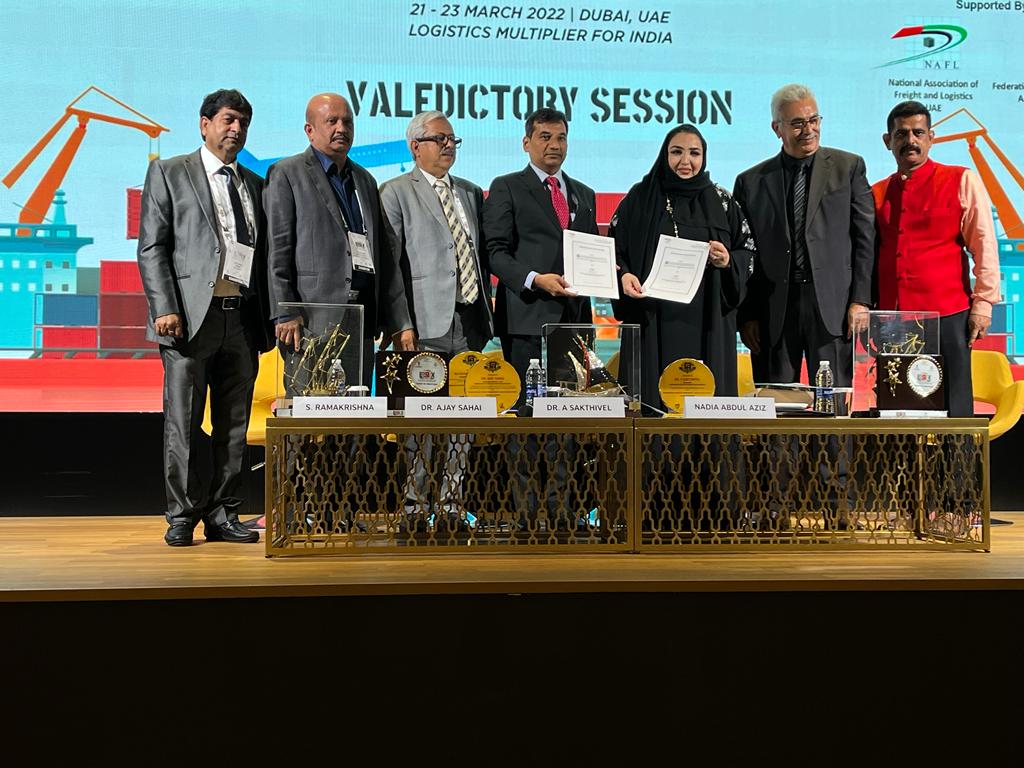High Level Maritime Dialogue – Building Back Better Together
The second edition of the High-Level Maritime Dialogue titled ‘Build Back Better: Shock-Resistant Supply Chains’ on 7 November, was hosted by FIATA, moderated by its Working Group Sea Chair and Senior Vice President, Mr Jens Roemer.
‘’Shipping lines and forwarders will have to learn to cope with unexpected service challenges as a new reality’’- Global Shippers Forum
In the context of high uncertainty and volatility, this unique set-up brought together high-level stakeholders from across the maritime supply chain to explore common goals and practical solutions in a constructive manner, to strengthen the maritime supply chain for greater resilience. The speaker line-up involved:
- Mr James Hookham, Secretary General, Global Shippers Forum (GSF)
- Mr John Butler, President and CEO, World Shipping Council (WSC)
- Ms Antonella Teodoro, Senior Consultant, MDS Transmodal, UK (MDST)
- Mr Alan Murphy, Founder and CEO, Sea Intelligence
- Ms Andrea Tang, International Trade Lawyer, International Federation Freight Forwarders Associations (FIATA)
Supply chain shifts as a response to changes in demand trends and global shocks
Supply chains have responded to a dramatic rise and fall in demand in recent years. Lessons are to be learned to prepare for uncertainties plaguing the future. “The problems encountered are not new; they exposed the vulnerability of the supply chain when planning and forecasting were not possible. The shocks brought by the pandemic cast a spotlight on the role of logistics, as well as its importance for the economic and social well-being of consumers”, said Ms Tang.
Supply chain shifts were considered, as well as the rise and fall in freight rates. It was noted by Ms Teodoro that “supply chain shifts were observed both in terms of geography and composition. When carriers repositioned capacity to the most profitable routes, new entrants attempted to service the gaps they left behind”. Mr Butler emphasised that “there is stiff competition in the shipping sector”, and that “carriers followed demand and did not create it”. Ms Teodoro recommended that ‘‘regulators should monitor such competition trends and transparency in the maritime supply chain closely to promote resilience”.
The need for infrastructural reform was unanimously agreed upon, noting hinterland congestion as an important contributor to the difficulties in the maritime supply chain. Mr Murphy commented that “instead of just consumer demand, the congestion in 2021 was exacerbated, as up to 15% of global liner capacity was stuck at bottlenecks. The reduction in demand has reduced congestion which is presently at 7.5% and could revert to pre-pandemic levels by spring 2023”. The importance of making governments aware of supply chain issues was emphasised by Mr Hookham: “if the sector is to make any arguments, now is the time to do so”.
In conclusion, Mr Roemer reminded participants that “the clock cannot be turned back but stakeholders and regulators must learn from mistakes of the past. No single stakeholder should be overconfident to impose plans that are not complementary with the overall system.”
Collaborating for decarbonisation
It was agreed that decarbonising the supply chain is an urgent priority for all stakeholders, constituting a key area for collaboration between the respective stakeholders. As highlighted by Mr Butler, ‘‘the industry is leading the way when it comes to implementation with shipping lines and energy companies investing in decarbonisation’’. The industry would benefit from an appropriate regulatory framework, governmental support, and advocacy for which stakeholders must come together to help the whole supply chain comply with Paris Agreement goals.
Shippers remain concerned about the cost of decarbonisation which will ultimately be borne by them. FIATA sought transparency in new decarbonisation initiatives, noting the need for forwarders to be able to provide their customers with choices as regards offsetting their emissions. It was emphasised that inclusivity is necessary, in particular for small and medium-sized enterprises (SMEs). FIATA emphasised that “SMEs should not be left behind, as they are the backbone of many developing economies. As they tend not to have access to longer-term contracts, they are more heavily impacted by shocks and uncertainty.”
Concluding the dialogue, decarbonisation was put firmly on the agenda as a theme for greater collaboration, whilst other areas of possible collaboration noted included sustainability, digitalisation and safety and security.
NAFL’s Performance is Commendable and Upbeat
Industry UAE Apex Body demonstrates buoyancy and resilience in the face of the pandemic
The 33rd AGM of the National Association of Freight & Logistics (NAFL) was recently commemorated amid much fanfare in the opulent ambience of the Al Jaddaf Waterfront Ballroom of the Versace Pallazzo Dubai. The well-attended, in person meeting, conducted amid strict enforcement Covid-19 protocols and regulations, signaled renewed hope and optimism ahead for the industry despite challenges.
Assurance

In her keynote address, Nadia Abdul Aziz, President, NAFL& Vice President, FIATA, lauded the Association’s 2020 performance and its resolve to stem the tide and buck trends. She assured that NAFL would stand shoulder to shoulder with members to empower and equip members in these challenging times. Ms. Nadia assured the assembly that the NAFL stood rock solid behind its members and would endeavour to represent and work in their interest and to protect the interests of the industry. She expressed confidence that the current situation notwithstanding, the logistics and freight industry in the UAE would continue to grow from strength to strength.
Ms. Nadia also reiterated that NAFL aims to support its members in these difficult times, by offering them sponsored trainings after the Eid Al Fitr holidays. She advocated a culture of openness and sincerity at NAFL so that all relevant and pressing industry issues are appropriately discussed internally and then communicated and conveyed to all concerned government offices through detailed reports on the challenges and solutions. “NAFL will stand in solidarity and in unity and pledge to work closely with our members to overcome current difficulties and sustain their businesses,” she affirmed.
Pioneer
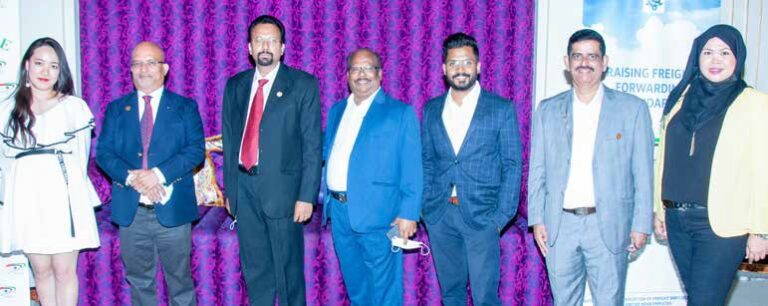 To this end, NAFL as a long-established, responsible representative body and the first of its kind in the GCC, is also working closely with the Government, other Governmental bodies and regulators to ensure that the growth, stability and viability of the freight and logistics sector in the UAE. Nadia further reiterated that the Government was mindful of both the importance and indispensability of the industry. Simultaneously, both representation and engagement with associates, constituents and Government are pivotal to guarantee an ecosystem for progress and productivity.
To this end, NAFL as a long-established, responsible representative body and the first of its kind in the GCC, is also working closely with the Government, other Governmental bodies and regulators to ensure that the growth, stability and viability of the freight and logistics sector in the UAE. Nadia further reiterated that the Government was mindful of both the importance and indispensability of the industry. Simultaneously, both representation and engagement with associates, constituents and Government are pivotal to guarantee an ecosystem for progress and productivity.
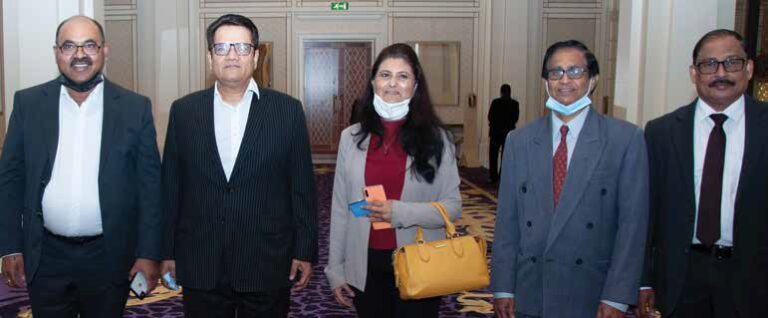
Due to Dubai’s bold initiatives and the UAE’s global connectivity and excellent infrastructure, we are the global hub for the distribution and storage of vaccines and take the top place for humanitarian aid distribution. Thanks also to the logistics industry in the UAE which has risen to the occasion to make certain that movement and distribution of goods continues unimpeded, seamless and in a streamlined manner,” she observed.
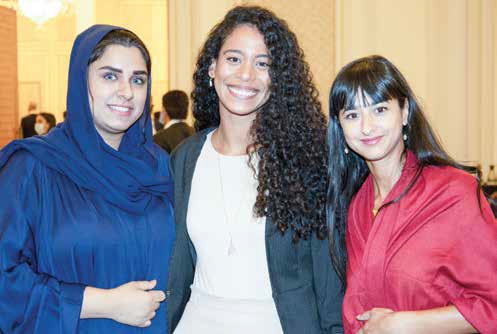
Highlights: Some of the highlights of her speech were:
- NAFL will be working closely with Expo 2020 and organizers and will ensure all members are advised and trained on all rules and regulations in line with Expo procedures and contracts.
- NAFL will be participating and supporting big global exhibitions during the Expo period such as Hypermotion show and the Air Show Cargo Connect Conference.
- Expo 2020 would be a great platform to network and engage with multiple national, regional and international stakeholders from over 190 participating countries.
DP World Builds Resilience in Global Petrochemicals Through Advanced Trade and Logistics Solutions
Jebel Ali Free Zone (Jafza) accounted for over 50 per cent of Dubai’s Polymers and Petrochemical trade, valued at more than AED 49 billion in 2021
Global economies are facing increased pressure from uncertainty in oil prices, capacity, and supply chain disruptions. The petrochemicals sector is not exempt from these global challenges. Despite this, Jebel Ali Free Zone’s (Jafza) petrochemical sector witnessed stability. One indication of this is the increase in export volumes in 2021, which grew 52 per cent year-on-year. Additionally, last year, the free zone alone accounted for over 50 per cent of Dubai’s Polymers and Petrochemicals trade, valued at more than AED 49 billion.
Enabling Seamless Trade
DP World, through its local and regional assets, multimodal connectivity, cost-effective supply chain solutions and digital trade platforms has supported petrochemical trade lanes and ecosystems worldwide. The company plays a crucial role in facilitating the growth of the regional and global petrochemicals sector through Jebel Ali.
The integrated logistics offerings, supported by connectivity across international petrochemical
trade lanes and the ecosystem at the Jebel Ali hub, give the industry the most attractive logistic
proposition. Additionally, its vast network of global liners has contributed to the success of the
UAE and the region.
The Jebel Ali Connectivity
DP World’s petrochemical hub, which spans the port and the free zone, handles over one-third of the UAE’s polymer and petrochemical trade through Jebel Ali Port. With storage being an essential factor in the industry, finding a suitable site with convenient connectivity for trade and transport, and a very high standard of safety due to the nature of the products is integral. Jebel Ali Port’s solutions meet all these requirements while ensuring reduced costs and time-efficient operations for customers.
Jebel Ali Port complements the traders’ ambitions with tank terminals and warehousing, specialised storage space for packed lubricants, fuels and industrial chemicals, ISO tanks storage and hazardous goods warehouses.
The port comprises tank terminals with 11 dedicated berths for liquid handling, spread over an area of 2 million square metres with over 1 million cubic metres of liquid bulk storage space. The Chemical berth is well equipped with a storage capacity of over 250,000 cubic meters to store various grades of chemicals.
Prominent industry players such as DOW, BASF, Total and Gulf Petrochem are now headquartered within Jafza and create the basis of a healthy ecosystem of almost 600 companies in the sector. Jafza’s strategic location is also ideal for serving demand in the Middle East and Africa. Its industrial facilities for processing and value-added services make it the perfect base for chemical and petrochemical traders serving growing markets in the Indian Subcontinent and the Middle East.
It’s Global or Nothing in the World of GSAs
As a household name in the industry, Global GSA Group has never been so active. With a new office in Greece and having acquired three companies in Italy this year, the GSA is demonstrating how its extreme flexibility, extensive local expertise and highly engaged workforce are driving its success.
True to the company’s motto “Making the impossible possible!”, the Global GSA Group’s team distinguishes itself not only by its dedication and passion but also by its access to the right network locally. “We are currently present worldwide with a team of energetic, reliable and experienced professionals with the highest standard of expertise, which we have been perfecting since our beginnings. This constitutes a real strength and a substantial asset to our partner airlines’ business.” says Ismail Durmaz, Chief Executive Officer.
Founded in 1995, Global GSA Group was able to adapt to the industry’s constant evolutions, including digital transformation to become a forerunner in the world of GSAs. This agility enabled it to successfully support its clients in particularly difficult periods such as the Covid pandemic and beyond. By exceeding clients’ expectations during those troubled times, Global GSA Group proved it has what it takes to tackle any challenging situation.
Aytekin Saray, Chief Commercial Officer explains: “Although the last few years have been a testing time for airlines, we proved that we were a reliable partner. Thanks to our strong local ties, we managed to supply them with regular market information, enabling them to always be a step ahead and to adapt their strategy accordingly.”
Today, Global GSA Group boasts 74 offices in 46 countries, represents 62 airlines and ranks in the top 5 GSAs worldwide. Always seeking to conquer new territories, it is planning to further expand its presence worldwide, with a focus on the South America and Southeast Asia regions.
As Global GSA Group continues its rising curve in an increasingly tense climate, 2023 clearly promises to be the year it unleashes the true lion inside it, reinforcing its unique position on the market as the ideal committed partner with solid solutions.
GEFCO Group and Almajdouie Logistics create a joint venture in Saudi Arabia
The relationship between the two powerhouse companies began in January 2018 when they partnered to provide finished vehicle logistics services to Almajdouie Auto (MMC), the importer of Hyundai in Saudi Arabia.
FFFAI Signs MoU with NAFL in Dubai
The Federation of Freight Forwarders’ Associations in India (FFFAI) and National Association of Freight & Logistics (NAFL), based in Dubai, UAE, have signed a Memorandum of Understanding (MoU) to strengthen, promote and develop cooperation on the basis of equality and mutual benefit.
Navigating NAFL Through Turbulent Times
NAFL President Nadia Abdul Aziz holds forth on a wide range of industry
subjects and their consequences in the shadow of the pandemic
There is no doubt that the Covid-19 pandemic has dealt a massive blow to the global economy. On the supply side, factories and businesses have been forced to close temporarily due to the shortage of input materials from suppliers and the need to protect workers. Demand is declining, too, as consumers stay home and face the prospect of a large-scale economic downturn.
As a natural and obvious corollary, the pandemic has irretrievably impacted both national and international trade and constituent production, supplies, transportation distribution systems with far-reaching economic consequences for the core logistics and supply chain industry.
Many logistics and supply chain companies and related services providers in the UAE have gone out of their usual to not only tackle the disruptions wrought by the pandemic and its fall out on virtually every industry sector across the globe. To get to know and understand the ramifications of the pandemic in the UAE and region, Global Supply Chain conducted an exclusive expansive interview with Nadia Abdul Aziz, the second-term President of the long-established UAE’s National Association of Freight and Logistics, NAFL, the first apex association of freight logistics service providers to be established in the Middle East. Nadia is also the first Emirati to hold this coveted position.
Global Supply Chain (GSC): Briefly, what are key takeaways of the Covid-19 pandemic from the logistics and supply
chain perspective? Nadia Abdul Aziz (NAA): There are clearly many far-reaching and across-the-board implications of the onset of Covid-19 pandemic for the national, regional and international logistics and supply chain industry.
We learned that we need to have the following in place to avoid major business disruptions—to have contingency plans for crisis situations and management of businesses during crises.
We need to train employees on extensive use of IT and new tried and tested technologies for our businesses and how to maximize productivity by the latest available hi-tech services and smart applications. We also realize capability, adaptation and resilience in employees who can run business successfully despite the odds Furthermore, we need to invest more in the software used in the offices as digitalization is the future and becoming increasingly indispensable.

The UAE Government is well prepared in his segment and the Government Strategy & Charter for 2021 was implemented earlier which has proven to be very effective and successful.
The private sector should engage and use the updated and the latest available technology in their work. Quotes, rates, online live client meetings, management reports, online marketing and sales are now the new norm. We need to harness technology to drive sales, generate more business, and reduce costs and most of all now is to connect to the e-commerce users and ensure you can fulfill their needs & requirements.
There has been a big uptake on this front and this will continue in the foreseeable future, which means logistic firms need to be ready to capture this growing market with opportunities. A good example is Noon Logistics which is now really focused on serving clients online by delivering daily groceries to top fashion and electronic items. Many e-commerce businesses have been prudent to realize the potential of online marketing and purchasing a sector that will continue to deliver greater dividends going forward.
GSC: How is the onset of the pandemic impacting the L&SC (logistics & supply chain) trade regionally and globally and the UAE specifically?
NAA: Logistics was badly impaired in some instances or considerably reduced in the immediate aftermath of the shutdown following the outbreak of the pandemic. There was an increase in medical supplies cargo, food supplies, urgent machinery parts and humanitarian aid along with other main necessities. Large volumes of emergency and medical goods are being airlifted to the much needed areas. Due to high demand and restricted flights, the result was higher air freight rates by 3 to 4 times than the regular air freight rates.
Fortunately in the UAE it was well organized compared to other countries and this was thanks to the Government’s
use of technology, smart services long ago which made it easier for forwarders to work remotely during shutdown and even after. During the shutdown forwarders were permitted to work as their industry is one of the vital industries in the country to ensure everything the hospitals, medical community and consumers need are
available.
All operations for imports and exports of necessary goods are done using a single window application such as ‘Dubai Trade’ for Dubai corporates and ‘Maqta Gateway’ for Abu Dhabi. This facilitated the streamlined movements of goods and reduced personal and unnecessary face-to-face interaction as operations are conducted online to complete cargo documentation and clearance.
GSC: How much of your professional work environment / ecosystem in the operations realm has changed as a result
of the Covid-19 virus onslaught?
NAA: I estimate at least 40 percent of our work can be done remotely, as most Government transactions can be done online and even over your mobile. Better coordination and communication skills were used during the pandemic to complete client work and I can say more team work and harmonization is called for as everyone wants to stay safe whilst at the same time secure their jobs even if it means doing the work remotely or in shifts.
We at NAFL have efficiently utilized our office space to ensure all employees can work in a safe environment as we ensured here is appropriate and mandatory social distancing. The same is also true of many of our associates and members. We are continually monitoring the market for quality protective materials that we can provide for our staff. We operate as a close knit team ensuring everyone knows their responsibilities to stay safe and to ensure
safety at all times. We are mindful that our member-companies are also following suit.
Utilizing temperature and heat sensitive cameras in the warehouses to monitor everyone with a fever can be effectively used to reduce risk of any infection or virus spread at the facilities and warehouses. That applies to all and many NAFL associate companies have invested in this arena to ensure safety of their employees and workforce.
https://globalsupplychainme.com/2020/08/navigating-nafl-through-turbulent-times/
